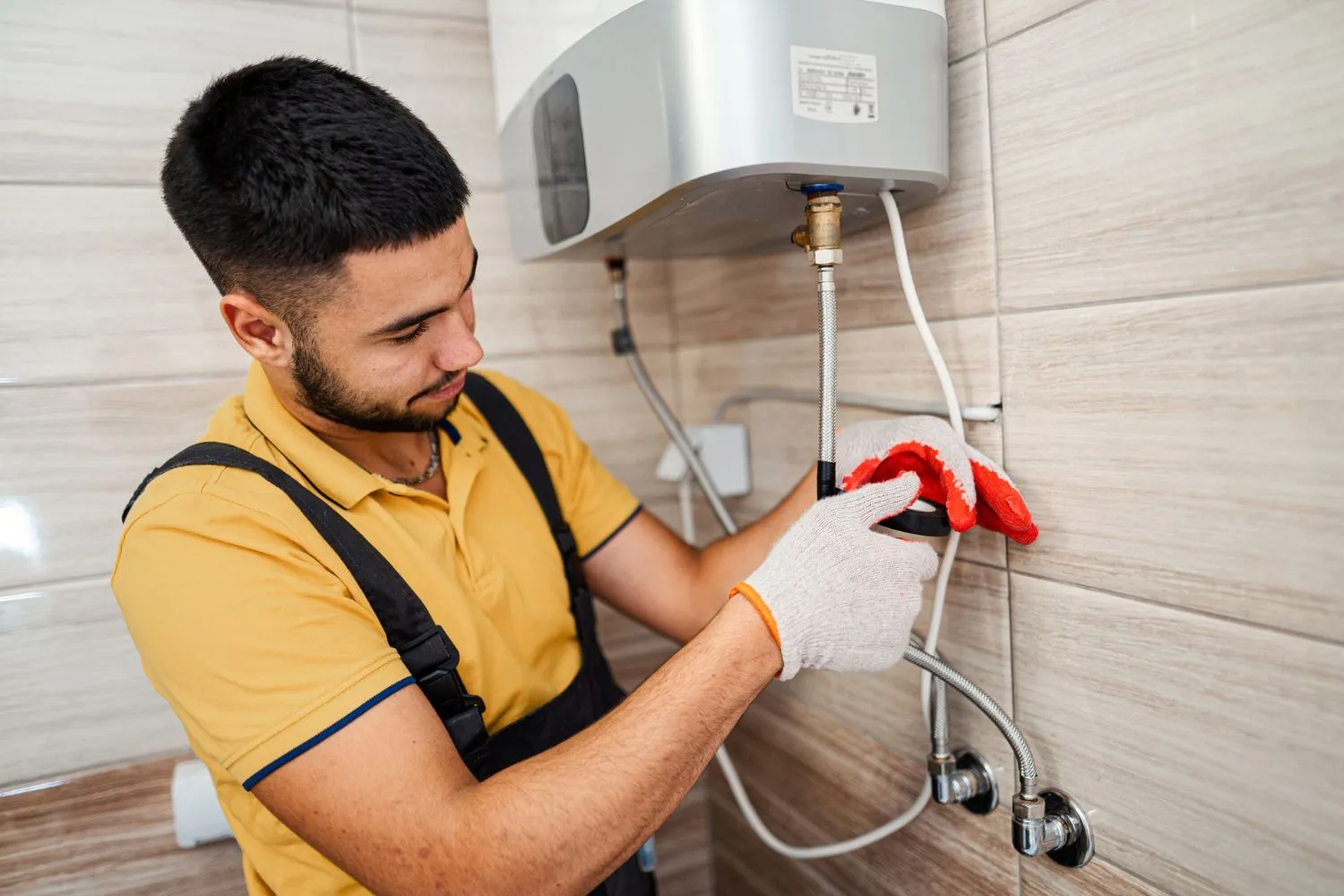Handling Regular Heater Malfunctions
Handling Regular Heater Malfunctions
Blog Article
Just how do you actually feel about Water Heaters Problems?

Visualize beginning your day without your regular hot shower. That currently sets a bad tone for the rest of your day.
Every house requires a reliable hot water heater, yet only a few understand just how to manage one. One simple means to keep your water heater in leading form is to check for mistakes routinely as well as repair them as quickly as they appear.
Remember to shut off your hot water heater prior to sniffing around for mistakes. These are the water heater faults you are most likely to encounter.
Water as well warm or as well chilly
Every water heater has a thermostat that identifies how hot the water obtains. If the water entering your house is as well hot in spite of setting a hassle-free optimum temperature, your thermostat could be malfunctioning.
On the other hand, too cold water might be because of a failed thermostat, a busted circuit, or inappropriate gas flow. As an example, if you utilize a gas hot water heater with a broken pilot burner, you would obtain cold water, even if the thermostat is in best problem. For electric heaters, a blown fuse may be the wrongdoer.
Insufficient warm water
Hot water heater come in lots of dimensions, depending on your hot water needs. If you lack hot water prior to every person has had a bath, your water heater is as well little for your family size. You need to think about setting up a larger water heater container or choosing a tankless hot water heater, which occupies much less area and is much more sturdy.
Strange noises
There are at least 5 kinds of noises you can speak with a hot water heater, however the most common interpretation is that it's time for the water heater to retire.
First of all, you should know with the regular seems a water heater makes. An electrical heating system might sound different from a gas-powered one.
Popping or banging audios generally imply there is a slab of debris in your storage tanks, and also it's time to cleanse it out. On the other hand, whistling or hissing sounds might simply be your shutoffs allowing some pressure off.
Water leakages
Leakages might originate from pipes, water links, valves, or in the worst-case circumstance, the tank itself. With time, water will wear away the tank, and also find its way out. If this takes place, you need to replace your hot water heater as soon as possible.
Nevertheless, prior to your change your entire tank, make sure that all pipelines are in location which each shutoff functions flawlessly. If you still require assistance recognizing a leakage, call your plumber.
Rust-colored water
Rust-colored water suggests among your hot water heater components is corroded. It could be the anode rod, or the tank itself. Your plumber will be able to identify which it is.
Lukewarm water
No matter how high you established the thermostat, you won't get any warm water out of a heating system well past its prime. A hot water heater's performance might lower with time.
You will certainly also obtain lukewarm water if your pipelines have a cross link. This suggests that when you activate a faucet, hot water from the heating system streams in alongside normal, cold water. A cross connection is easy to area. If your hot water taps still pursue shutting the hot water heater valves, you have a cross link.
Discoloured Water
Rust is a significant root cause of dirty or discoloured water. Rust within the water tank or a stopping working anode pole could cause this discolouration. The anode rod shields the tank from rusting on the inside and should be examined annual. Without a pole or a correctly operating anode rod, the warm water rapidly rusts inside the container. Get in touch with an expert water heater specialist to determine if changing the anode pole will certainly fix the issue; otherwise, replace your hot water heater.
Verdict
Preferably, your hot water heater can last one decade prior to you require a modification. Nevertheless, after the 10-year mark, you may experience any of these faults more frequently. At this moment, you need to include a brand-new water heater to your budget.
How To Troubleshoot 3 Common Water Heater Problems in Twin Cities
The Water Heater Is Leaking
A leaky cold water inlet valve A loose pipe fitting A leaky temperature and pressure relief valve A corroded anode rod A cracked tank Turn Off Your Water Heater:
Shut off your gas water heater by turning the gas valve on the unit to the “OFF” position. Shut off your electric water by switching its power off at your electrical panel. Look for a two-pole breaker labeled “water heater” and turn it to the “OFF” position. Move the ball valve connected to the water heater to be perpendicular to the piping at a 90° angle. Look for the Leak:
Depending on whether the water is coming from the tank's top or bottom, you’ll want to look for the leak in different locations.
If the leak comes from the top of the tank, carefully look for water escaping from the cold water inlet valve or loose pipe fittings. Rusted hot and cold water valves can have loose connections with the tank, with water leaking out of them.
https://mspplumbingheatingair.com/blog/how-to-troubleshoot-3-common-water-heater-problems
Do you appreciate reading up on Common Problems with Your Home Water Heater? Write a remark directly below. We would be delighted to hear your thoughts about this article. We are looking forward that you visit us again before long. Please take the opportunity to distribute this blog entry if you appreciated it. I value reading our article about Water Heater Repair and Troubleshooting.
Pro assistance? Dial. Report this page